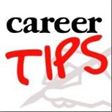Don’t have a brand? Think again!
Everyone has a brand. The only real question is what they are doing to cultivate it? Just because you do not have your logo or have your own company, doesn’t mean you do not have a personal brand.
However, what is a personal brand and why should you care about it?
Some define a personal brand as the set of characteristics and values that immediately come to mind when people see or hear about you. However, if you stop there, what you have described is more a reputation and not a brand. An effective personal branding does not just describe your characteristics and values. It ALSO defines the promises you make to employers and the value you bring to their organization.
The reality of employment today is that recruiters and hiring managers are turning to the internet to look for and find out information on the people they might employ.
According to data reported by CareerEnlightment.com, even five years ago, 94% of recruiters and some hiring managers were turning to social media as a new source for qualified candidates.
Let’s face it, the queues of people lined up to get in the traditional doors of opportunity are worse than the lines at Ben & Jerry’s on Free Cone Day! Your chances of being a successful applicant through these methods are slim.
Furthermore, for hiring managers, they are labor intensive as for each job posting they put out they contend with hundreds of résumés.
Job seekers and hiring managers would far rather “bump into” each other on the internet via their networks than sifting through hundreds of people they do not know.

But, I’m not even on Social Media!
Even if you have made a personal decision to stay off social media and don’t post information on the internet, monitoring and maintaining your online presence is essential.
Your brand lives both online and offline. Just because you don’t interact with social media does not mean you do not have a brand. Social media is only one source for people to find and discover more about your brand, but it also exists in the employment reviews and personal experiences of those who know you and work with you.
For those who chose to engage in the online world, digital networking is playing an ever-increasing role in identifying and creating new opportunities. Those who think their CV, a newspaper and maybe a few company job posts via gumtree, career boards or company websites are the best or only tools available for career management are selling themselves short.
Branding…The bare minimum
The most effective personal brands will align with who you are AND be relevant to your target organization. The trick comes in figuring out how to break it down and concisely explained it across multiple media sources including social media, personal conversations, and your CV.
Since you already have a brand, you don’t need to create one. What you can do is manage your personal brand so that what people see about you is what you WANT them to see.
- Start by identifying your values. What are the things you stand for, no matter what. What are your pet peeves? The things that irritate you if they aren’t done right? These questions might help you point to what you find important in life and work.
- Next, identify your strengths. What do you do better than others?
- Take the time to research the perspectives of others. Ask friends, family members, and employers for feedback on your character, personality, and performance. In fact, Performance Reports can be a valuable source of external information that will help you to identify where you excel and where you don’t
- Finally, research the needs of your ideal employer or client. Take the time to consider the challenges that they are facing and how your brand would offer them value.
Final Thoughts
Monitor your Online Reputation by frequently Googling Your name
Don’t think that because you haven’t posted anything that there isn’t information about you available on the internet. So, what do you do if something unsavory comes up in your search?
The simple answer is to bury it.
While it is challenging to remove something once it is online, frequent posts about brand-oriented content will help to keep quality information on your brand high in the search engines and minimize anything that might not be so complimentary.
Invest in Building a Quality, Concise Brand
There are several great resources available both online and off. One of the best investments you can make is in your career. The small price you’ll pay compared to your annual salary will pay itself off multiple times over. Consider working with a qualified career coach or certified résumé writer who can help you to identify and articulate your personal brand on paper and via social sites.
Many people feel like they can do this by themselves, but the intensely personal nature of the work can make it difficult to be objective. If you do decide to DIY your career, then at a minimum get the advice and feedback of friends, family, and coworkers who may have unique insights and perspectives on your value that you might not have considered.

